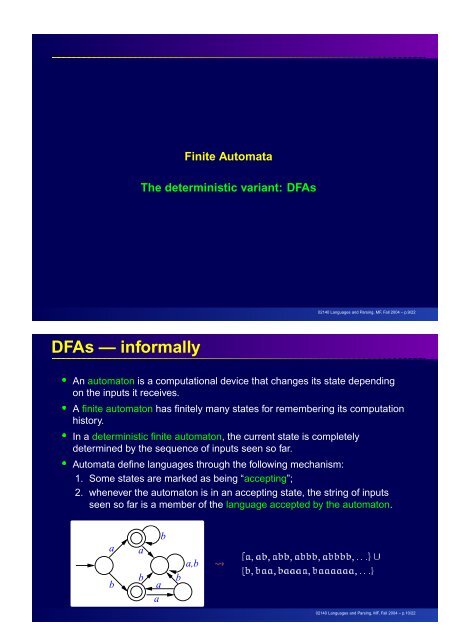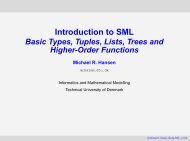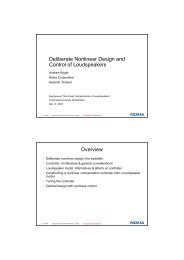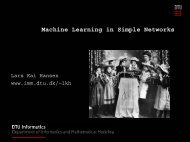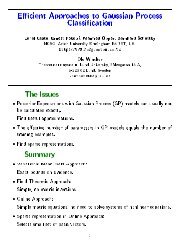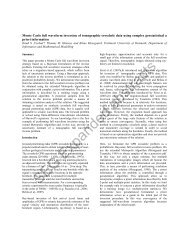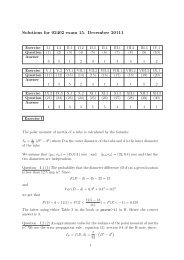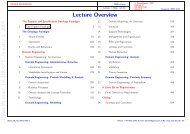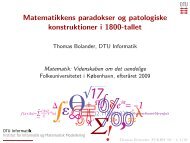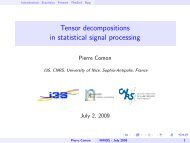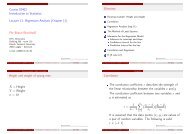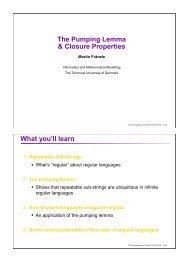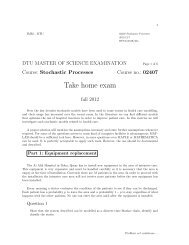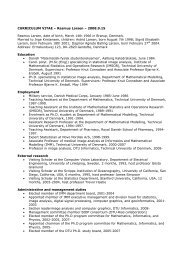Deterministic Finite Automata (DFA) Nondeterministic Finite Automata
Deterministic Finite Automata (DFA) Nondeterministic Finite Automata
Deterministic Finite Automata (DFA) Nondeterministic Finite Automata
You also want an ePaper? Increase the reach of your titles
YUMPU automatically turns print PDFs into web optimized ePapers that Google loves.
@<br />
£<br />
<br />
<br />
£ ?<br />
<br />
?<br />
£<br />
?<br />
£<br />
<br />
? £<br />
£ <br />
¡<br />
¡<br />
¥<br />
¥<br />
<br />
<br />
<br />
<br />
<br />
?<br />
<br />
?<br />
<br />
<br />
<br />
?<br />
£ ?<br />
<br />
?<br />
<br />
<br />
<br />
<br />
£ ?<br />
?<br />
?<br />
<br />
£ ?<br />
?<br />
<br />
><br />
<strong>Finite</strong> <strong>Automata</strong><br />
The deterministic variant: <strong>DFA</strong>s<br />
02140 Languages and Parsing, MF, Fall 2004 – p.9/22<br />
<strong>DFA</strong>s — informally<br />
An automaton is a computational device that changes its state depending<br />
on the inputs it receives.<br />
A finite automaton has finitely many states for remembering its computation<br />
history.<br />
In a deterministic finite automaton, the current state is completely<br />
determined by the sequence of inputs seen so far.<br />
<strong>Automata</strong> define languages through the following mechanism:<br />
1. Some states are marked as being “accepting”;<br />
2. whenever the automaton is in an accepting state, the string of inputs<br />
seen so far is a member of the language accepted by the automaton.<br />
a<br />
b<br />
a<br />
b<br />
a<br />
a<br />
b<br />
b<br />
a,b<br />
02140 Languages and Parsing, MF, Fall 2004 – p.10/22


